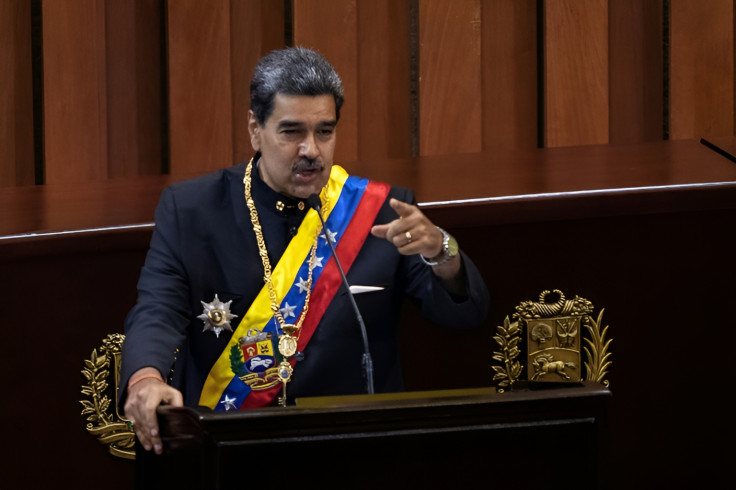
Venezuela's government-friendly electoral council (CNE) withdrew the European Union's invitation to oversee the country's presidential elections in July, claiming it would be "immoral" to allow so given its "neocolonialist and interventionist practices" with regards to the country.
"Due to the motives laid out, we ratify the sovereign decision to revoke the invitation extended to the EU," added Elvis Amoroso, the body's president.
The decision adds a new layer of uncertainty over the country's electoral process, as the long-entrenched government has long conveyed its reluctance to leave power. Top opposition members have also conceded that any transition would involve negotiations with the Maduro government, regardless of the potential electoral victory.
As pressures from the U.S. and abroad continue, Maduro has shown little interest in leaving his position, according to a recent report by The New York Times. In February, he promised a large crowd of followers that he would win the election "by hook or by crook."
Electoral oversight by international bodies such as the EU and the UN were a key part of the Barbados Agreements signed by the government and the opposition last year, which aimed to pave the way to freer and fairer elections in exchange for sanctions relief. The measures were largely reinstated this year after the U.S. concluded that the Venezuelan government was not honoring its end of the agreement.
The government had already warned about its opposition to oversight from the EU after the bloc lifted sanctions against four members of the CNE and not all of them, like Caracas had asked. The government-friendly Congress passed a motion on May 20 to revoke the invitation.
Body president Jorge Rodríguez, one of the government's most powerful figures, called EU members "bandits," "illegitimate" and "bastards" for not complying with the country's request.
"It's not for us to make the decision, but we can give our opinion. And I think this racist, rude, insulting attitude by the European Union makes it impossible and illegal to invite them to oversee the elections. It's not our fault, we tried," Rodríguez claimed.
He went on to say the EU is biased in favor of Edmundo González Urrutia, the opposition candidate who is currently ahead in the polls, calling him "the candidate of the United States."
Other government figures have echoed such criticism of González Urrutia, but he currently has a commanding, 40-point lead over president Nicolás Maduro.
In a recent interview with local outlet Caracas Chronicles, González Urrutia anticipated challenges similar to the ones faced by Guatemala's Bernardo Arévalo de León should he win the elections.
Same as Arévalo, he said, he believes the opposition coalition he represents will prevail and he will be sworn in before the National Assembly in January 2025 after a period of intense negotiations.
He envisions six months of negotiations post-election, hoping the political realities will expedite discussions with the current government. Addressing how he would handle institutions still under Chavismo control, González Urrutia emphasized the role of international observers to ensure a smooth transition of power, with support from the global community to guarantee the legitimacy of the electoral process.
© 2024 Latin Times. All rights reserved. Do not reproduce without permission.







